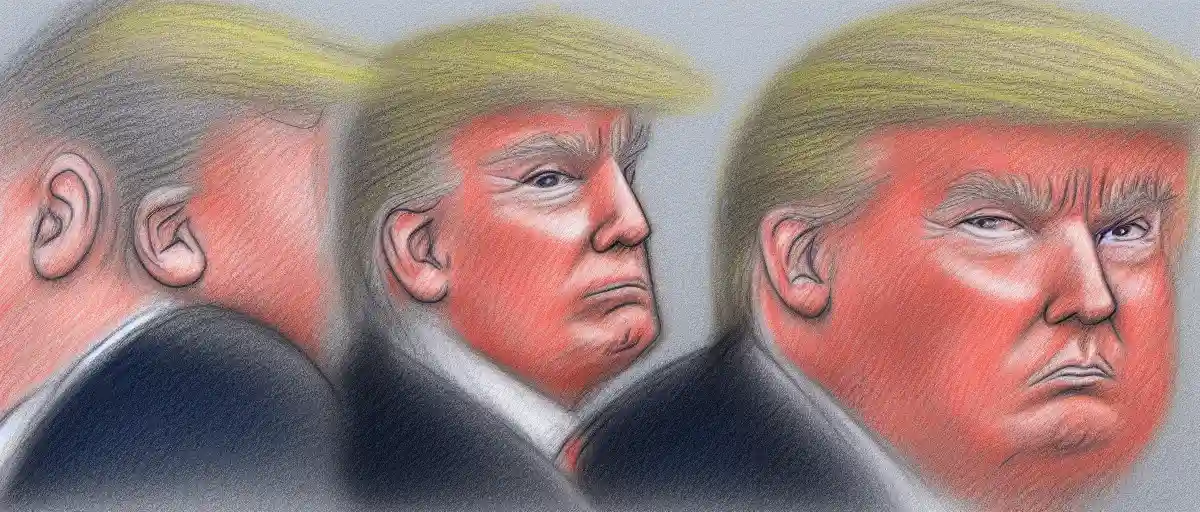This Could Be Of Interest To You Too:
[ Title] Trump Drops Bombshell Lawsuit Against Ex-Attorney: Confidant Turns Against Him
Former President Donald Trump’s decision to file a lawsuit against his former attorney, Michael Cohen, raises questions about the delicate balance between attorney-client privilege and freedom of expression. Trump claims that Cohen’s appearance on the podcast “Mea Culpa” violated their confidentiality agreement and exposed privileged information, leading to irreparable harm to his reputation.
On one side of the argument, supporters of Trump argue that confidentiality agreements are crucial in maintaining trust and effective legal representation. They believe that Cohen’s actions breached this trust and violated the terms of their agreement. Trump’s legal team seeks compensatory and punitive damages, asserting that this legal action will hold Cohen accountable for his alleged false and misleading statements.
However, opponents of Trump’s lawsuit argue that it is an attempt to stifle free speech and prevent Cohen from sharing his experiences working for the former president. They argue that the public has a right to know about the inner workings of Trump’s administration and any potential wrongdoing. In their view, the allegations of irreparable harm to Trump’s reputation may be overstated, considering his polarizing public image.
Regardless of the outcome of this lawsuit, it highlights the fragile nature of attorney-client privilege and the challenges it poses in a society that values transparency. While confidentiality agreements play a critical role in maintaining trust between attorneys and their clients, they can also be used to shield potentially harmful information from public scrutiny.
In cases like this, striking a balance between protecting privileged information and ensuring the public’s right to know becomes crucial. Some may argue that by participating in a public forum without prior approval, Cohen violated this balance. On the flip side, Cohen might contend that the public interest in understanding the truth outweighs any potential harm caused to Trump’s reputation.
Ultimately, it will be up to the court to determine the validity of Trump’s claims and whether Cohen’s actions indeed breached the confidentiality agreement. The outcome of this case will have significant implications for the boundaries of attorney-client privilege and the extent to which individuals can share their experiences working with public figures.
In a society that values open discussion and the dissemination of information, the case between Trump and Cohen serves as a reminder of the complexities surrounding attorney-client privilege and the need for transparency. While it is essential to protect the trust and privacy of clients, it is equally crucial to uphold the principles of free speech and public accountability.
The outcome of this lawsuit may set a precedent for future cases involving confidentiality agreements, clarifying the extent to which individuals can speak about their experiences with public figures without facing legal consequences. Striking the right balance will be a challenging task, as it requires considering the significance of preserving trust between attorneys and clients while ensuring that the public has access to vital information.
Irrespective of personal opinions about Trump or Cohen, this legal battle offers an opportunity to reflect on the importance of transparency and accountability in our legal system. Society benefits when individuals are allowed to voice their experiences, especially when they involve public figures who hold positions of power.
While it is crucial to protect the privacy of clients and maintain trust in attorney-client relationships, it is equally vital to preserve freedom of expression and the public’s right to access information relevant to their elected leaders. Striking the right balance in these cases requires careful examination and consideration of both the legal principles involved and the broader societal impact.
As this lawsuit progresses, it will undoubtedly spark discussions surrounding the boundaries of attorney-client privilege and the parameters of free speech. Resolving this delicate balance will require thoughtful consideration of the interests at stake, including the need for legal confidentiality and the public’s right to access information that affects their lives.
In the end, the outcome of this case will offer insights into how our legal system navigates these complex issues and whether it can preserve both the privacy of individuals and the transparency that underpins a functioning democracy. Whatever the result, this lawsuit serves as a reminder of the ongoing tensions between the desire for privacy and the necessity of public accountability.
Here's A Video We Thought You Might Also Like:
Author Profile

- I am Sophia Morgan, an author at news03.com, dedicated to providing you with factual news. Journalism is my passion, and I strive to deliver reliable and unbiased information in every article I write. I believe in the power of accurate reporting and its ability to empower individuals through knowledge. With a commitment to journalistic integrity, I aim to make complex topics accessible and easy to understand through my engaging writing style. Trustworthiness and accuracy are the cornerstones of my work, and I am honored to play a role in keeping you informed.
Latest entries
 Breaking News2023.12.08Dumbfounding Remarks Spark Controversy Was it just a Slip of the Tongue
Breaking News2023.12.08Dumbfounding Remarks Spark Controversy Was it just a Slip of the Tongue Breaking News2023.12.08Unnerving Decision President Biden Refuses to Pardon Hunter Biden Amidst Ongoing Scandals!
Breaking News2023.12.08Unnerving Decision President Biden Refuses to Pardon Hunter Biden Amidst Ongoing Scandals! Breaking News2023.12.06Bombshell Hunter Biden Faces Contempt of Congress After Rejecting Subpoena!
Breaking News2023.12.06Bombshell Hunter Biden Faces Contempt of Congress After Rejecting Subpoena! Breaking News2023.12.06Awesome Revelation Chinese Spy Balloon Shot Down in Hometown Raises National Security Concerns
Breaking News2023.12.06Awesome Revelation Chinese Spy Balloon Shot Down in Hometown Raises National Security Concerns






